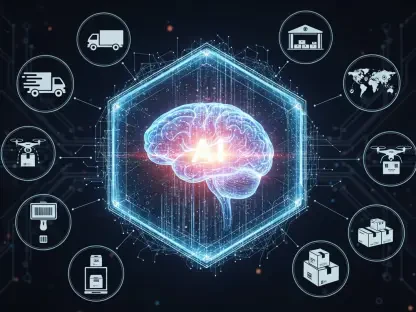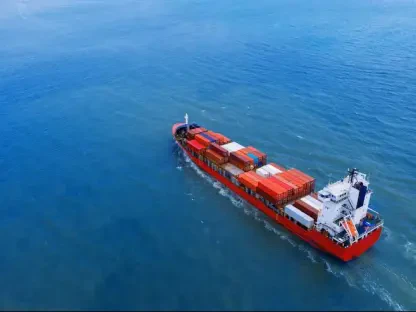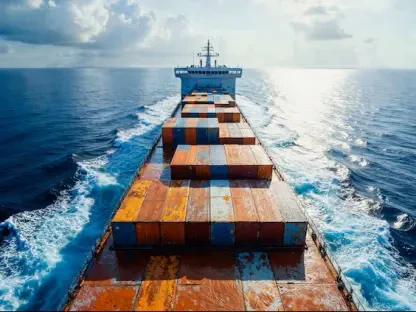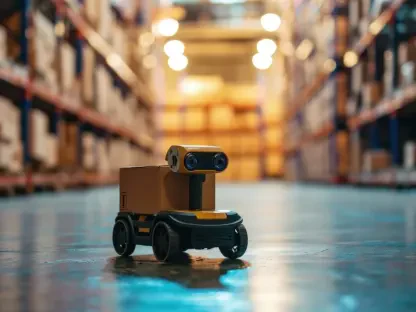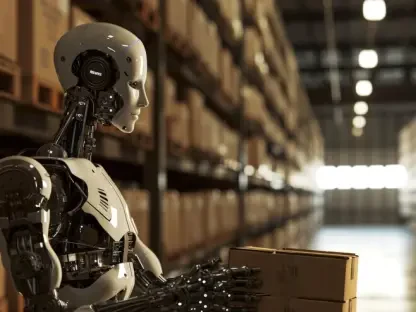The logistics industry is witnessing a transformative phase as traditional trucking methods face significant challenges, such as hazardous working conditions, driver shortages, and environmental impact. Amid these issues, a new collaboration between Volvo Autonomous Solutions (VAS) and AI self-driving startup Waabi has emerged, aiming to revolutionize autonomous trucking in the United States. This partnership harnesses Volvo’s VNL Autonomous vehicle and integrates it with Waabi’s cutting-edge Waabi Driver system, a sophisticated AI-driven virtual driver.
The Partnership Between Volvo and Waabi
Enhancing Safety and Reliability
Volvo Autonomous Solutions’ partnership with Waabi is primarily driven by the goal of significantly enhancing safety and reliability in the trucking industry. Waabi, founded by former Uber ATG Chief Scientist Raquel Urtasun, is leveraging its AI expertise to develop a driving autonomy system that ensures safe and adaptive autonomous driving. By integrating their AI-driven autonomy stack with essential hardware like sensors and computers, Waabi aims to create a robust autonomous driving experience that can navigate complex driving scenarios.
At the core of Waabi’s technology is Waabi World, a closed-loop simulation system built using generative AI (Gen AI). This innovative platform is designed to continuously test and improve the AI ‘brain’ by exposing it to diverse driving scenarios ranging from routine to critical. The generative AI system allows the autonomous vehicle to learn from these experiences autonomously, significantly reducing the need for manual intervention or human oversight in real-world testing.
Addressing Industry Challenges
The trucking industry’s current state demonstrates a pressing need for innovative solutions to tackle its longstanding challenges. One of the most significant issues is ensuring the safety and well-being of truck drivers, who often face hazardous working conditions. AI-driven systems such as Waabi’s have the potential to mitigate these dangers by reducing the need for human drivers in high-risk situations. Additionally, the integration of advanced technology aims to address the industry’s chronic driver shortages by enabling trucks to operate autonomously for extended periods without the limitations of human fatigue.
Another key focus of this partnership is to enhance the environmental sustainability of trucking operations. Traditional trucks contribute substantially to carbon emissions, underscoring the need for more ecologically sound transport solutions. Autonomous trucks optimized by AI systems can achieve better fuel efficiency through smarter route planning and operational efficiency, thereby reducing their overall environmental footprint. The synergetic combination of Volvo’s engineering prowess and Waabi’s AI expertise promises to deliver a more sustainable logistical future.
The Technology Behind Autonomous Trucking
The Role of Waabi Driver System
The Waabi Driver system is a cornerstone of this autonomous trucking revolution. Utilizing an advanced AI-powered virtual driver, it brings a blend of machine learning algorithms and real-time data processing to the forefront of autonomous vehicle operations. One of the system’s standout features is its ability to process vast amounts of information from multiple sensors instantaneously, enabling it to make split-second decisions critical for safe driving.
Waabi Driver’s adaptability is another crucial component, facilitated by its connection to Waabi World. This Gen AI platform continuously refines the AI system’s capabilities by exposing it to countless simulated driving scenarios. By doing so, it equips the AI driver with the experience needed to handle real-world conditions, including unforeseen events and road anomalies. This constant learning loop not only enhances safety but also ensures the AI system remains at the cutting edge of autonomous driving technology.
Perfecting the VNL Autonomous Vehicle
Volvo’s VNL Autonomous vehicle serves as the ideal platform for deploying Waabi’s groundbreaking technology. Known for its six critical redundancy systems for safety, the VNL Autonomous boasts a highly resilient infrastructure that can support complex autonomous driving tasks. These redundancy systems ensure that in the case of any single failure, the vehicle can continue to operate safely, thereby providing an added layer of reliability.
Volvo’s collaboration with Aurora Innovation initially paved the way for integrating advanced technologies within their autonomous fleet. Now, with Waabi’s contribution of state-of-the-art AI systems, Volvo aims to take their autonomous ambitions even further. The partnership envisions commercial pilots of the VNL Autonomous by early 2025, culminating in a public road demonstration later in the year. These initiatives mark important milestones that will test the practical implications and viability of the technology in real-world scenarios.
Prospects and Impact on the Logistics Industry
Revolutionizing Logistics with AI and Automation
The collaboration between Volvo and Waabi signifies a significant leap toward revolutionizing logistics through AI and automation. By merging Volvo’s established expertise in vehicle automation and safety with Waabi’s advanced AI-driven systems, the partnership sets the stage for scalable, reliable, and safe autonomous transport solutions. These innovations aim to address industry challenges while also driving operational efficiencies and cost reductions.
One of the anticipated benefits of this autonomous trucking initiative is the potential to streamline long-haul logistics. Autonomous trucks could operate around the clock without the mandatory rest periods required for human drivers, leading to faster delivery times and increased productivity. Additionally, the enhanced safety features embedded in these AI-driven systems are expected to markedly reduce the occurrence of accidents, further augmenting the logistics sector’s efficiency and reliability.
Future Considerations and Actionable Steps
The logistics industry is undergoing a major transformation as traditional trucking methods grapple with several serious challenges, such as hazardous working conditions, a shortage of drivers, and considerable environmental impact. In the midst of these pressing issues, Volvo Autonomous Solutions (VAS) has chosen to partner with the innovative AI self-driving startup Waabi, aiming to bring significant advancements to autonomous trucking in the United States. This collaboration leverages Volvo’s VNL Autonomous vehicle, integrating it with Waabi’s state-of-the-art Waabi Driver system, a highly sophisticated AI-driven virtual driver. This partnership aims to address the industry’s critical needs by providing safer, more efficient, and environmentally friendly trucking solutions. By combining Volvo’s expertise in vehicle manufacturing with Waabi’s cutting-edge AI technology, this alliance aspires to redefine the future of the trucking industry, making it more sustainable and reliable for years to come.


